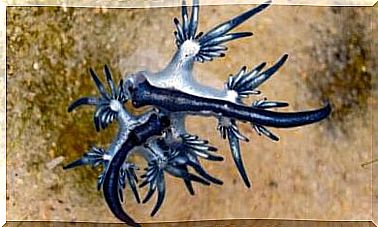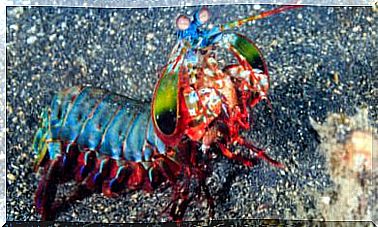Phytoplankton For Dogs: A New Superfood?
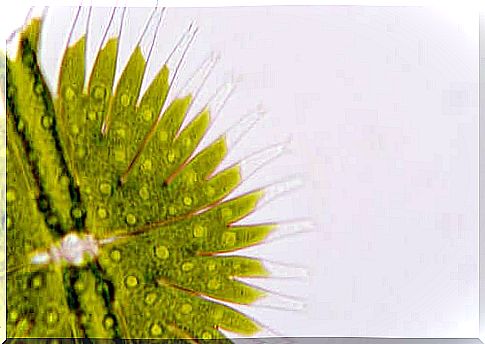
Because of its numerous nutritional benefits, phytoplankton is currently included in many functional food lists for dogs.
We would like to point out, however, that before including food supplements in your pet’s diet, you should thoroughly research them and discuss their suitability with your veterinarian. This saves the animal a lot of inconvenience.
What you should know about phytoplankton
Phytoplankton is made up of two types of unicellular microscopic organisms: microalgae and cyanobacteria.
Millions of them live floating in the upper layers of the seas and inland waters, all over the world. In the oceans, 90% of the biomass is made up of phytoplankton.
These organisms were the first living things to be able to carry out photosynthesis. As is well known, the reduction of the high carbon dioxide content and the production of oxygen enabled the emergence of higher forms of life.
In ecology, phytoplankton, since it consists of primary producers, is the first link in the aquatic food chain. The species of phytoplankton are known as autotrophs.
This is due to their ability to live and multiply by using sunlight through photosynthesis and producing organic substances from inorganic substances.
Because of their high content of fatty acids, minerals, antioxidants, amino acids and vitamins , these microorganisms are considered superfoods.
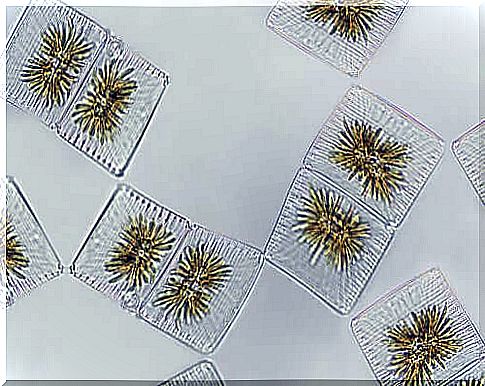
What species are phytoplankton made up of?
It is very interesting to know that this plankton is extremely heterogeneous. It is made up of thousands of different types. Because of this high biodiversity, the phytoplankton can adapt to the different conditions of the waters in which it lives.
Therefore , various factors influence the composition of the species found in phytoplankton. These factors include salinity, temperature, the turbidity of the water (due to the intensity of the incident light) and the nutrient content.
It is known that most of the phytoplankton taxa studied include diatoms, dinoflagellates, cyanophytes or blue-green algae, brown algae, and coccolithophoridae. Each taxon in turn consists of thousands of species.
What Are The Benefits Of Phytoplankton For Dogs?
The benefits of phytoplankton stem from its high content of the following nutrients:
1. Long chain fatty acids: omega-3 and omega-6
Just like in humans , omega-3 and omega-6 fats affect a large number of processes in the dog’s body.
They are considered to be excellent tools in treating skin conditions, allergies, kidney dysfunction, heart disease, cognitive functions, and arthritis, to name a few examples.
There are three essential omega-3 fatty acids: eicosapentaenoic acid (EPA), docosahexaenoic acid (DHA) and alpha-linolenic acid (ALA). Know that freshwater phytoplankton does not produce EPA.
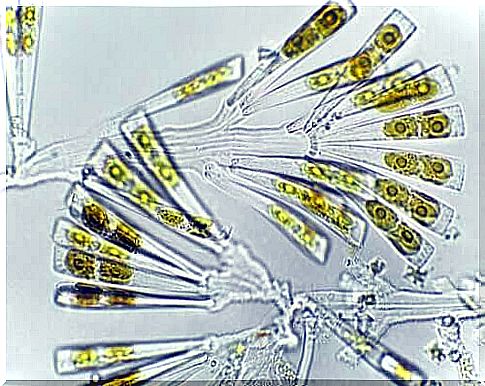
2. Phytoplankton for dogs provides important minerals
Many dogs are deficient in various trace elements that are important for basic biological functions.
Phytoplankton is a source of trace elements such as selenium, magnesium, and iodine, which can aid digestion, hormone regulation, and joint and thyroid health.
However, you should know that these microorganisms can contain toxic heavy metals, depending on the body of water from which this plankton originates. Hence, the quality of the product purchased is very important.
3. A good supply of antioxidants
Antioxidants are substances that inhibit oxidation, which is potentially harmful to living things if it occurs in excess. Due to its high antioxidant content, phytoplankton is able to prevent or reduce cell damage in your dog.
Oxidative damage is typical in diseases such as cancer, heart and autoimmune diseases.
A valuable dietary supplement
In addition, you should know that phytoplankton, even in very small amounts, can help improve health.
It also has a positive effect on the mobility of the joints, allergies and other skin diseases. It was also used as an aid in the treatment of chronic diseases. However, that does not mean that it can cure ailments (all on its own).
In short, phytoplankton for dogs is not a superfood, although it can be a good addition to your diet if the veterinarian deems it appropriate.


